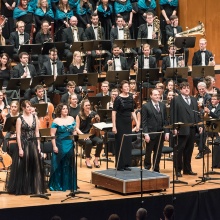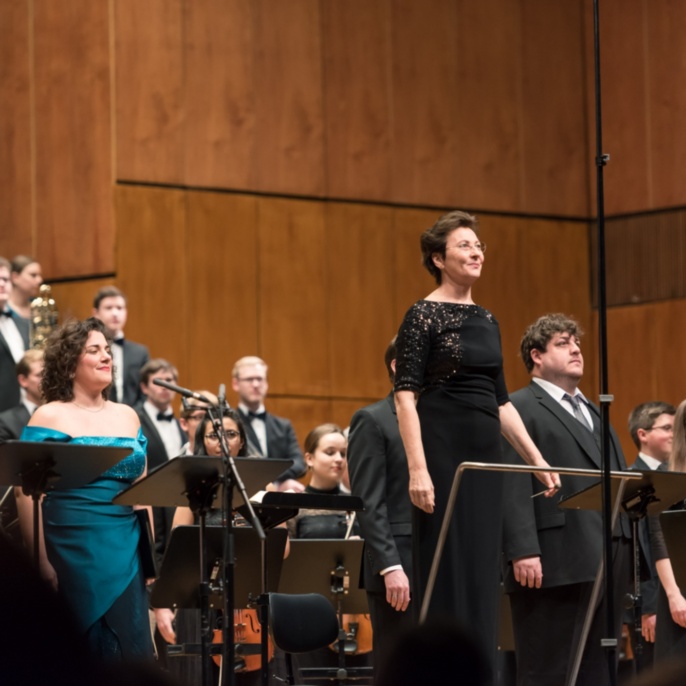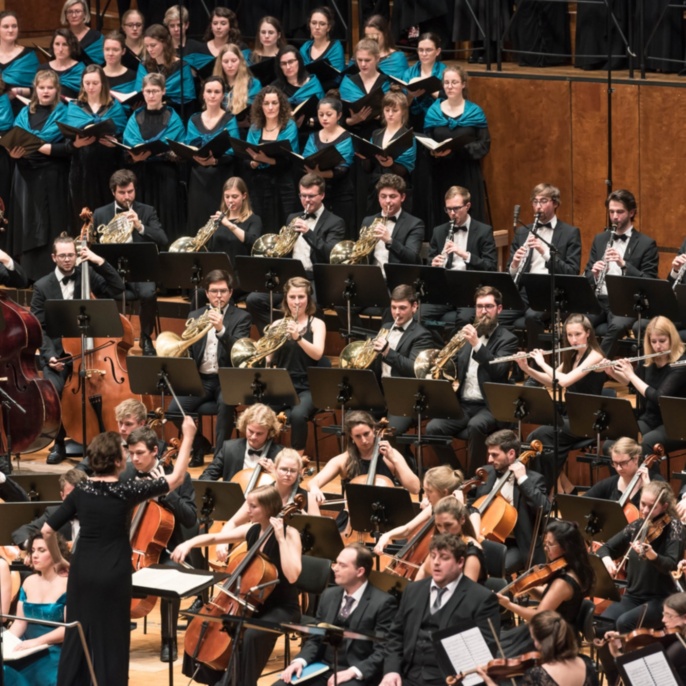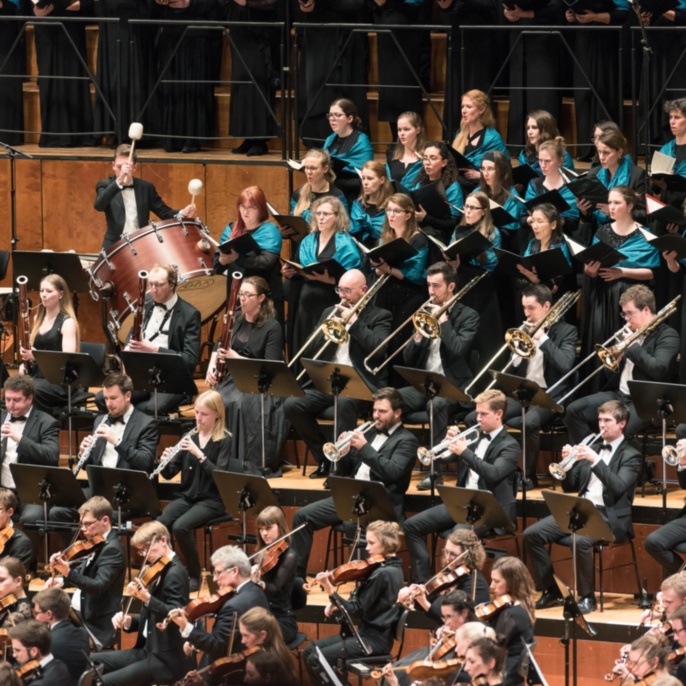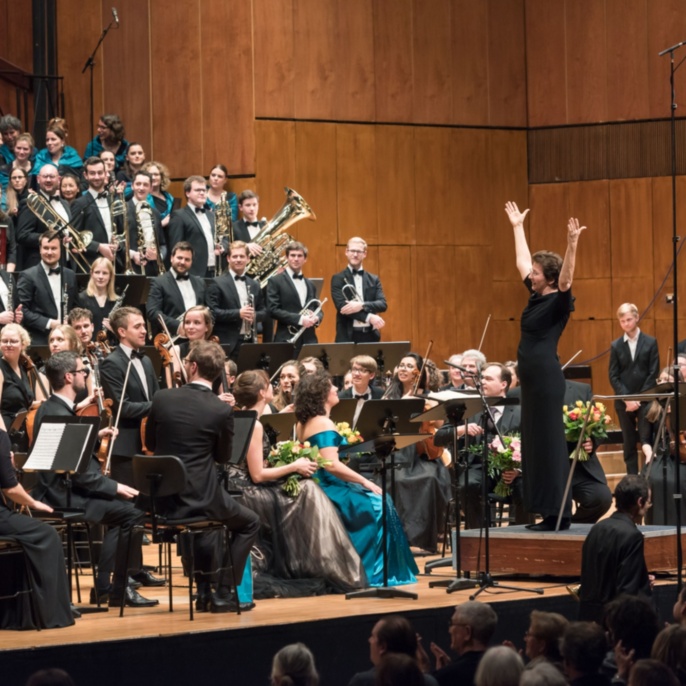It was an impressive farewell.
In the sold-out Beethovensaal at the Liederhalle, the university’s music director Veronika Stoertzenbach gave her last concert with the Academic Choir and the Academic Orchestra of the University of Stuttgart on 2 February. After more than 30 years, she said goodbye with Giuseppe Verdi’s renowned “Messa da Requiem” – to the delight of the audience.
For a full hour and a half, listeners were left spellbound by the requiem, which was first performed in Milan in 1874 and which is referred to as a musical prayer as well as a “spiritual opera”. Verdi’s monumental composition is based on the Catholic funeral mass, which in seven parts deals with issues such as humility before the power of death, guilt, the Last Judgment and begging for mercy and salvation. Together with the soloists, the Academic Choir and the Academic Orchestra provided the full range of emotions, from moments of light and hope to sadness and total despair.
“Grant them eternal rest, O Lord; and may perpetual light shine upon them” – softly and cautiously began the introduction courtesy of the choir, with the cellos playing in the softest pianissimo. On the other hand, the choir, brass, strings and percussion boomed out loud and clear all around the Beethovensaal like a musical raging storm for the “Dies Irae”, or “Day of Wrath”. “The day of wrath, that day will dissolve the world in ashes, as David and Sibyl prophesied” – it doesn’t take much of an imagination to imagine the roaring flames in the main part of the requiem. The trumpets for the Last Judgment were spread around the hall, which gave them a more penetrating sound than had they been on the stage.
Playing with feeling – a rollercoaster of emotions
The soloists Marie-Pierre Roy (soprano), Diana Haller (mezzo-soprano), Christian Georg (tenor) and Patrick Zielke (bass) impressed with their reading from the book of sins, praying for the souls of the dead, and their evocation of eternity. The choir, orchestra and soloists impressed as an ensemble as well as individually, and gave convincing performances in the more delicate passages as well as in the powerful fortissimo. The funeral mass, which is often referred to as “Verdi’s best opera”, ends as softly as it begins with the “Libera me”, the plea to be spared from judgment before eternal death.
After reverberating in the ears of the audience with feelings of pain, fear, hope and faith, the evocative piece of music ended with thundering applause. The choir and orchestra – under the leadership of Veronika Stoertzenbach for the last time – had taken on a demanding challenge, but had pulled it off masterfully and wowed the crowd once again.
Ambassador for the University of Stuttgart
In between the rounds of applause, the Rector Prof. Wolfram Ressel gave his thanks to the departing Veronika Stoertzenbach. He talked about how she had traveled to every continent on Earth with the University of Stuttgart’s choir and orchestra, and had visited every major university in the world. “Veronika Stoertzenbach, together with the choir and orchestra, has been as good an ambassador for the University of Stuttgart as anybody”, said Ressel, adding that not many universities in Germany could boast of holding such fantastic concerts as this one and playing to full concert halls.
“Who would have imagined 30 years ago that the Academic Choir and the Academic Orchestra of the University of Stuttgart would one day play a concert in the Liederhalle in front of more than 2000 people”, writes the chairman of the Academic Choir & Orchestra Association (FACOUS) in his opening greeting in the concert program. Veronika Stoertzenbach has been the driving force behind this achievement. She has continuously raised the standard of both the choir and the orchestra, fused the ensembles together, and in the process has raised the profile of the University of Stuttgart far beyond the city itself.
Veronika Stoertzenbach passed on the baton to Mihály Zeke. Zeke was born in London in 1982 as the son of Hungarian and Greek musician parents, and studied church music as well as choral and orchestral conducting at the State University of Music and Performing Arts Stuttgart. He has previously been choirmaster at the Dijon Opera Choir, as well as working as a freelance conductor and teaching at various music academies.
Academic Choir and the Academic Orchestra of the University of Stuttgart [de]


